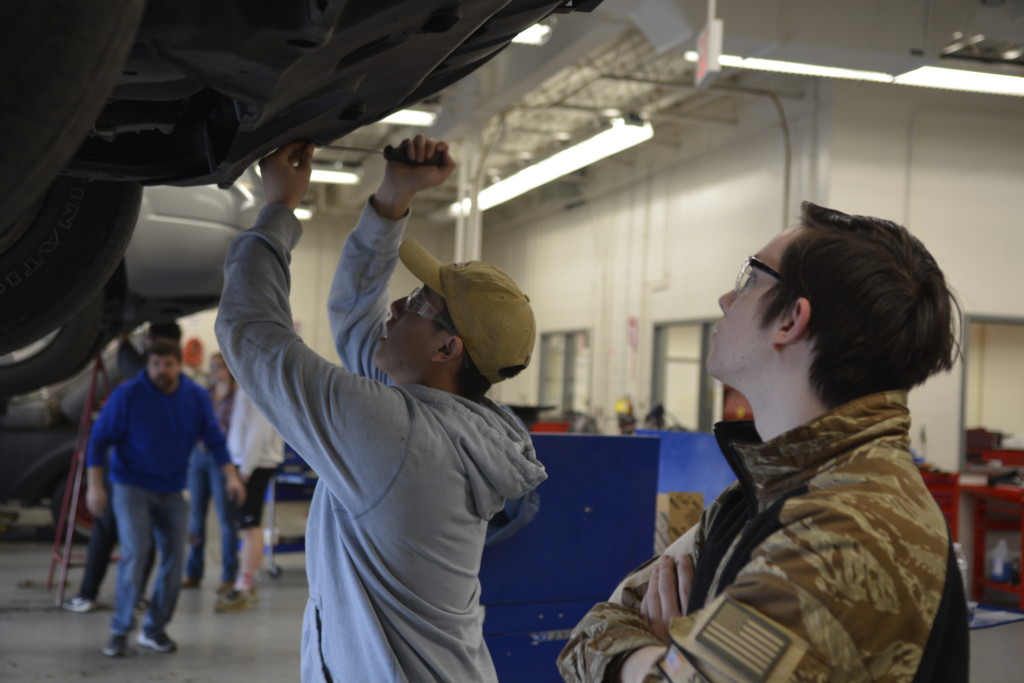Though county typically funds the majority of resources for the average class, academy classes must also generate their own finances for their necessary expensive supplies.
The Marshall Academy consists of specialized classes that help those enrolled obtain both career experience and industry-recognized certificates and licenses in the technical field they wish to pursue. Available courses are Cosmetology, Criminal Justice, Automotive Technology, Entrepreneurship, Culinary Arts, Chinese, Engineering and Information Technology.
Engineering teacher Nancy Rogers said the equipment classes use are school-funded, but she also recieves grants from Fairfax County.
“The school has done a great job funding some of our equipment, but a lot of funding comes from the Carl Perkins fund, which is a grant for Fairfax County tech classes,” Rogers said. “We also just got a nice grant from the Vienna Rotary club. I [also] write grants. It takes a little work to get that funding, but so far I’ve been very fortunate in being able to buy the equipment we need for the class.”
Rogers said the process of writing grants is time-consuming because she has to research what equipment the class needs based on a model they are trying to build.
“You have to think, ‘what would the next step be, what would I like to do?’ and then you have to research exactly what components you need for that [model] and put it all together, make sure it’s going to work, sometimes even buy a few things […] and then you have to write that up,” Rogers said.
While engineering primarily generates funding for resources through the grants they receive, cosmetology students have to pay for additional tools the class may need.
“Career and Technical Education (CTE) funds most of the resources,” cosmetology teacher Vanessa Hinton said. “But as far as providing tools that students use in their toolkit: blow dryers, irons, things like that. Students have to pay for them, but they’re still a lot cheaper than going out and buying them off the shelves in some retail store.”
Hinton said students in cosmetology also have the opportunity to work as assistants for local salons, and they occasionally host fundraising events as well.
“We work with salons in the area [who] will hire students as assistants, giving them experience in working in a real-life situation,” Hinton said. “We will [also] hold after school events, inviting the public in to have their hair done when possible.”
The situation differs in the automotive technology classes, where students generate the majority of their funding through vehicular purchases.
“We use donated cars through the student auto sales,” automotive technology teacher John Napier said. “We fix them and sell them on an auction website to provide funding for our department.”
Napier said while writing grants is a possibility, the money the students make through sales is substantial enough to help fund the equipment they need for the class.
“I have not done any of the grants yet,” Napier said. “We generate our own money down here because […] we’re like a repair facility and a dealership. The students are actually fixing all these cars.”
The class generates money by working on teachers’ cars and the student auto sales cars, then selling them online. Their earnings offset the hefty price tag of the materials they need.
2019-02-15

